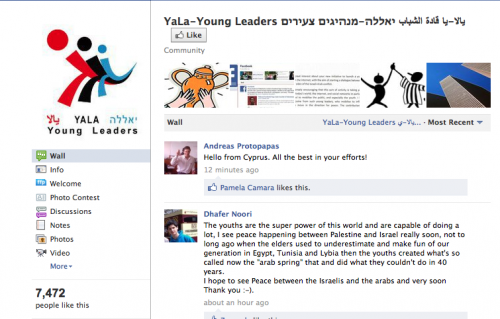Last year, when a report from the Electronic Intifada (EI) indicated that New York Times Middle East bureau chief Ethan Bronner hadn’t been forthcoming about his son’s participation in the Israeli Defense Forces, I wrote that I felt it was a strong conflict of interest for a foreign embedded journalist to have a child participating in that foreign country’s military (note: it is perfectly legal for a US citizen to serve in a foreign military under most circumstances). The Columbia Journalism Review and the Times‘ public editor weighed in on the issue, with the latter calling the situation “too close to home” and suggesting Bronner be reassigned.
He wasn’t.
Now, Bronner’s ethics have come into question again following an article in which Bronner highlighted an Israeli-Palestinian online initiative called “YaLa Young Leaders.” The Electronic Intifada once again unearthed the issue, and has done an excellent job of bringing to light the issues.
For many, this would appear to be a matter of political dispute, and for Palestinian activists it no doubt is. Nevertheless, with the facts laid bare, it becomes abundantly clear that Bronner’s reporting on the online initiative is at best less than stellar, and at worst downright fabricated in parts.
The major issues for me are as follows:
- The number of active participants in the group, as Bronner cites it, is “22,500.” Frankly, that’s impossible. In order to actively participate in a Facebook page, one must click the “like” button. According to a screenshot published within the EI article, that number was, on June 19, only 1,200. A cache of the page from June 10 shows only 717 users. Now, just three days after the release of Bronner’s article, the number has jumped to 7,472 (see screenshot), exactly 15,028 fewer “active participants” than Bronner stated were taking part.
The article also claims that 60% of the page’s participants are Arabs, but it is unclear how Bronner deduced that number, or the number of alleged page views YaLa’s page had received. It is possible that Facebook handed over the latter number, but as to the former, I can say with some certainty that it is next to impossible to deduce the nationalities of “22,500” people on Facebook. And since Facebook doesn’t actually ask for nationality (it does ask for location, which not everyone provides), Bronner’s statistic is plainly a fabrication.
- It is clear that Moad Arqoub did not come across YaLa while “bouncing around the Internet the other day”, as Bronner states. As EI states, Arqoub was participating on the page as early as May 22, a month and a half before Bronner’s article was published. Lest that be dismissed as semantics, EI has pointed out that Arqoub has been participating in similar initiatives with the only other individual cited in the article for years, and has a prior relationship with
YaLa’s founder Eyal Ravivsuspected YaLa founder Eyal Raviv [edit: Eyal Raviv was involved in similar initiatives along with Arqoub and the other quoted individual, but may only be tangentially involved with YaLa leaders]. - Good journalism is not one-sided: There is significant Palestinian opposition to such initiatives, as EI points out, which is evidenced by the fact that few Palestinians appear to actually be participating on the page. Whatever Bronner’s opinion on initiatives like YaLa, his lack of coverage on more widespread initiatives like the Boycott, Divestment, and Sanctions campaign indicates bias.
In effect, and as EI points out, the article comes across as a press release for a minor (by any estimation) Facebook page.
